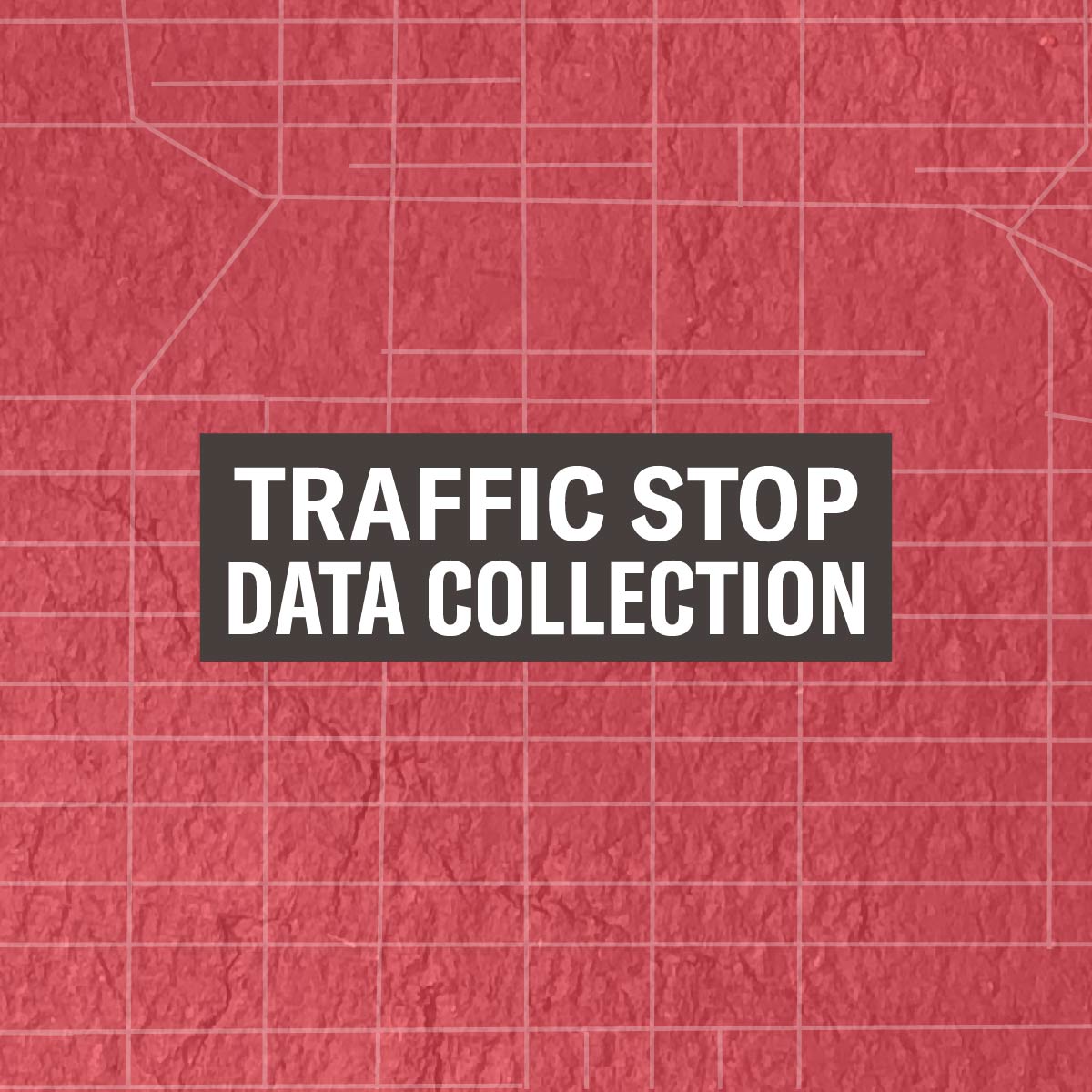

Traffic Stop Data Collection
By completing this form, I agree to receive occasional emails per the terms of the ACLU’s privacy statement.
Last updated on January 14, 2026
Traffic Stop Data Collection
Racial discrimination in policing is illegal and undermines public safety. We expect police to enforce laws in a neutral way, not targeting people based on race.
Racial discrimination in policing is illegal and undermines public safety. We expect police to enforce laws in a neutral way, not targeting people based on race.
For generations, Black drivers have complained about being targeted for traffic stops – stops that can interrupt one’s day, lead to intrusive actions like searches and generally create distrust between police and the community they serve. Concerns about the targeting of Black and Brown drivers for traffic stops have grown in recent years as police have increasingly used such stops as a misguided tool to enhance public safety.
In the early 2000s, as Black drivers across the country increasingly went public with reports of biased stops, state legislators enacted the Illinois Traffic Stop Statistical Study Act as a way to measure how officers were using their authority on streets and highways. The 2003 bill, sponsored by then-state senator Barack Obama, was made permanent by legislators in 2019. This law requires every law enforcement officer in Illinois to record and report data about every traffic stop they execute—data that includes the race of the driver, the reason for the stop, and the outcome of the stop. Every law enforcement agency in the state must forward the data each year to the Illinois Department of Transportation, which produces a report that includes an analysis of the data.
Since the first report in 2005, we have seen persistent racial disparities in the rates at which Illinois law enforcement officers stop drivers and search their cars. And when the collection and reporting of pedestrian stop data was added in 2016, we saw these patterns continue.
It is critical that local law enforcement leaders examine and analyze the data for their jurisdiction, and commit to using training, enhanced oversight, and community engagement to eliminate policing that results in such dramatic racial disparities.
The Illinois Traffic Stop Statistical Study Act collects the following information for each stop:
- Gender and race of the driver
- Alleged violation or reason
- Result of stop
- Date, time & location
- Officer name & badge number
- Make and year of the vehicle
- If consent search was requested or conducted
- If dog sniff and subsequent search performed
- Whether and what kind of contraband found
Find out more:
Related Issues
Related Content

New Data Shows Chicago Police Conducted An Additional Half-Million Traffic Stops in 2023

- Criminal Legal Systems and Policing
New Data Shows Traffic Stops in Illinois Continue to Escalate as Racial Disparities Persist

Black and Latino Motorists in Illinois Continue to Experience Higher Rate of Traffic Stops According to New Data

